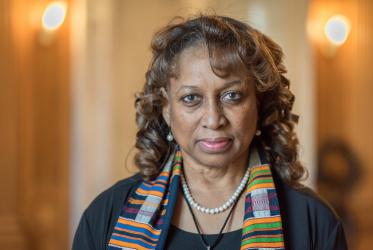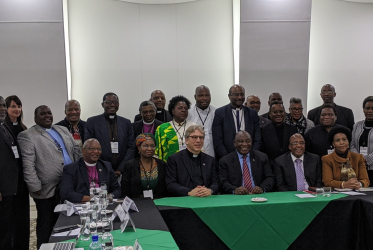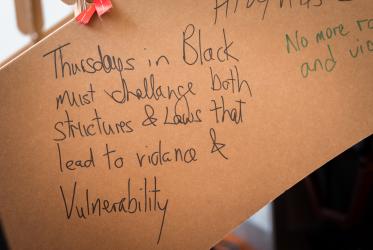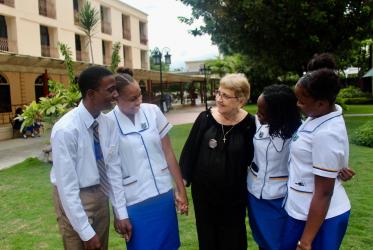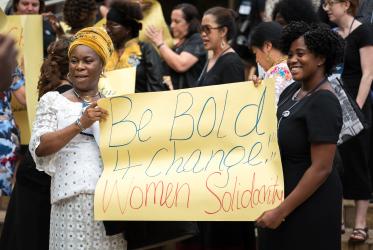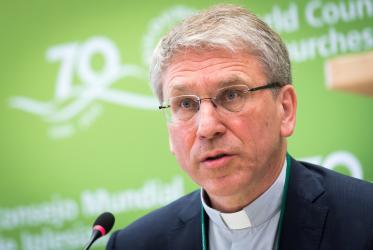Displaying 1 - 20 of 43
South Africans draw hope despite recurring challenges
16 December 2019
La délégation du COE rencontre le président sud-africain Ramaphosa
09 December 2019
Youth leaders: “We will stop at nothing” to end HIV and violence
17 October 2019
When you strike the women, you strike a rock
18 September 2019
Frapper une femme, c’est comme frapper un rocher
18 September 2019
Dieu est-il présent, même dans le déferlement d’un ouragan?
07 September 2019
“If this is the ecumenical movement I want to be in!”
11 October 2018
Linette Vassel: “We need to examine power more deeply as women”
03 October 2018
«L'amour triomphera»
23 August 2018
Tveit in DRC: “Making peace is holy work”
19 August 2018




